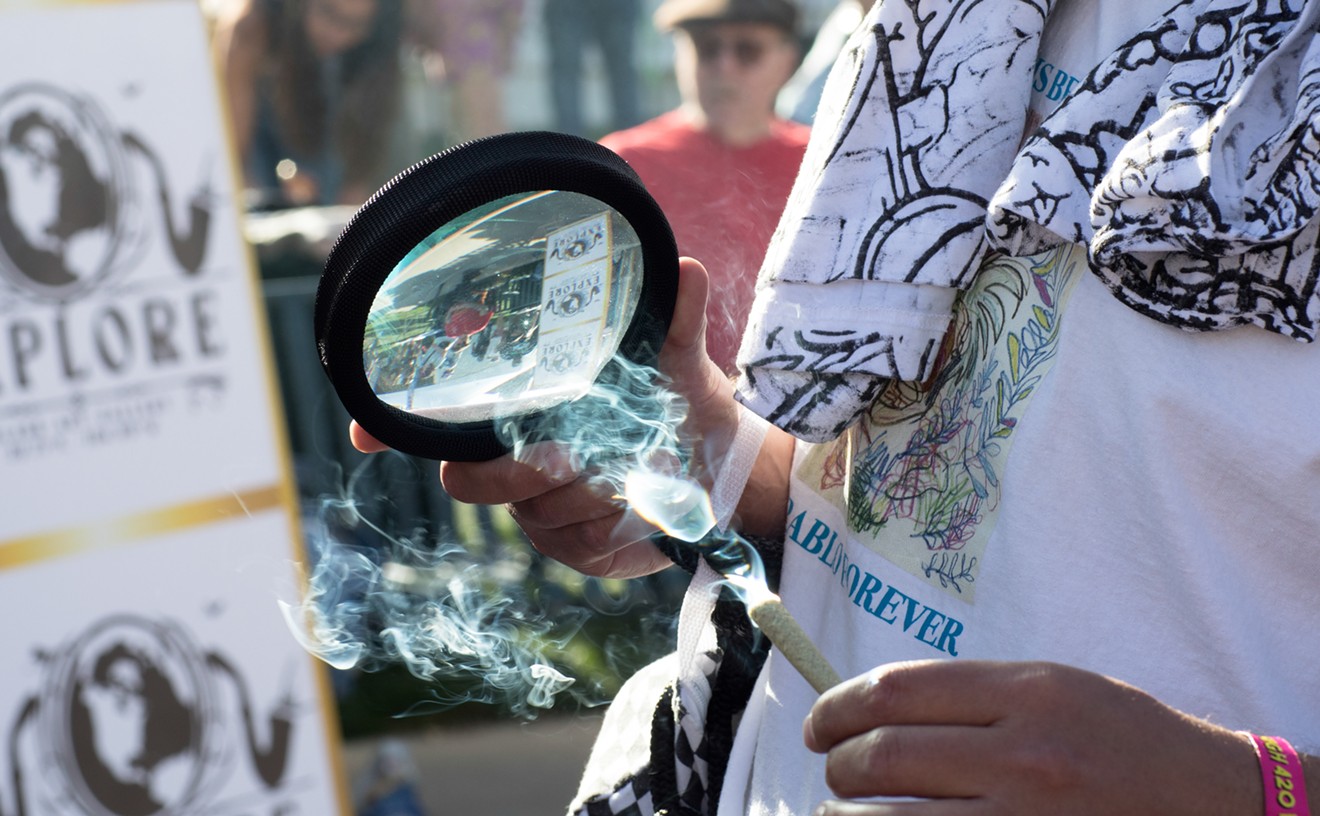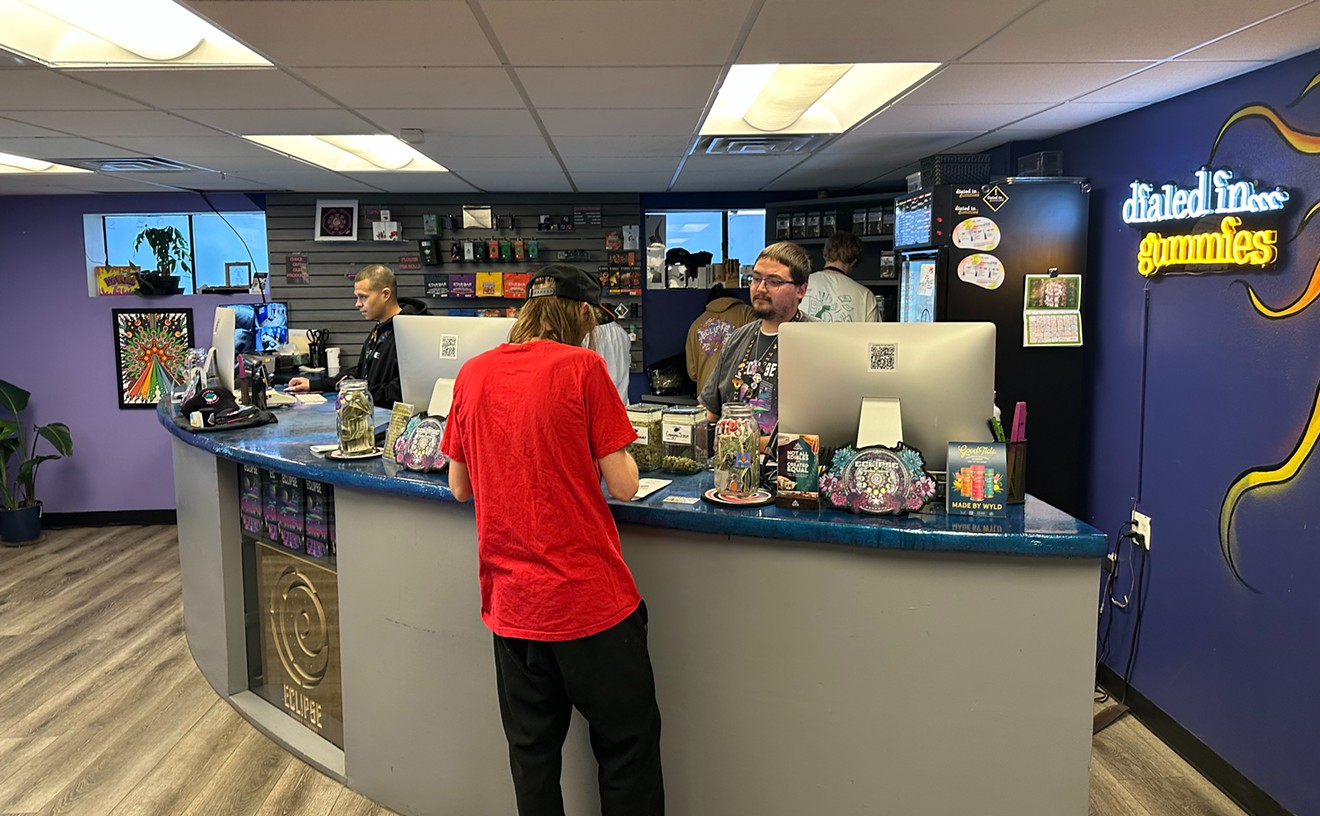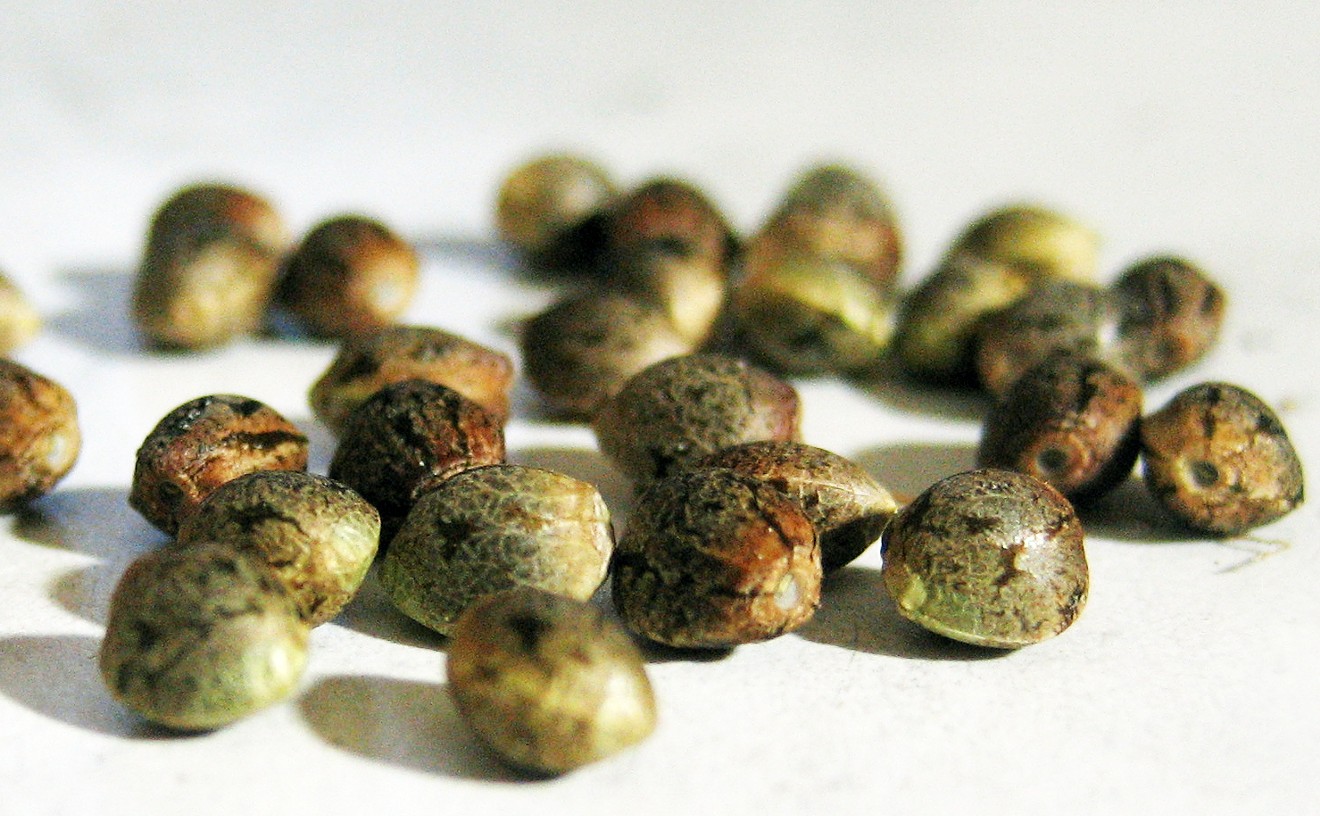One of the longest-running cannabis controversies in Colorado is about to come to a close. Last month, state lawmakers approved a measure that will create a statutory right for patients to use medical marijuana for PTSD and other stress disorders. When the law takes effect, it will mark the first time any condition has been added to those eligible for MMJ since 2001, when the initial list was created a year after Colorado voters approved Amendment 20. Amendment 20 gave patients and caregivers alike the right to possess, cultivate and use medicinal marijuana.
"Back then, I remember people coming in and saying they had PTSD, but it wasn't a qualifying condition, so you're sending them to a doctor or referring them out to a number of doctors, but you'd have to tell them they wouldn't qualify with PTSD," says Chad Drew, manager at Colorado Harvest Company. "I don't think people understood that with cannabis, the psychological side of things was just as predominant as a cancer or pain or any of a number of the physical things."
Drew is a veteran himself, serving between the two Gulf wars. His discharge date was two days before 9/11.
"I had it easier than most," he says. "As a veteran, I'm thankful that they included PTSD, because sometimes a special-forces guy goes over and is lucky and comes back with all of his limbs without ever having physical trauma, but that doesn't mean his head isn't completely mentally traumatized."
Drew never experienced PTSD, but during his eight years years in the cannabis industry, he's taken a group of patients under his wing who are all recovering from some kind of war trauma.
"I talk about all the time strapping on my green boots and fighting the green fight for my brethren, because not all of us are able to fight this green fight," he says. "When I've been a budtender, I've tried to take extra care of the veterans and let them know that I'm a veteran. Because there's a huge relationship between a budtender and the patient, and if that patient is coming to you with a severe military-caused ailment and they know you're military, you can tell them, 'I've taken care of so many veterans who feel out of the closet but only to me,'" he says.
As a result, he's been able to observe firsthand how cannabis helps service members cope with their PTSD. He was smoking with a veteran whose PTSD is triggered by sound when a car with a loud engine drove by outside. A sound like that would usually trigger this individual, and he still got a look of fear on his face, but that uncertainty, or "edge," as Drew calls it, didn't take hold of him as it usually would.
"Because you're in a different head space, you're not as anxious and not as on edge," Drew explains. "Even though, in my memory, I remember a half-second of 'edge' popping up, and it just took a smile, as opposed to twenty minutes of talking him down. When it comes to PTSD, I've seen it be one of the only things that can help."
Matt Kahl suffered a traumatic brain injury and sustained spinal injuries and facial fractures during his military service; he came home to Colorado in 2013 not only with PTSD, but in a lot of pain. He was on so many pharmaceutical drugs that his liver failed. When his kidneys also started to fail, Kahl tried cannabis. “Almost instantaneously, I recognized it could help,” he says. “It was the first time I was able to relax.”
Once he realized the benefits of marijuana, he started studying. He learned everything he could about each strain and every type of CBD, and discovered that there's a wide variety of phytocannabinoids in the cannabis plant. “Some of them have amazingly different effects,” he says.
In 2014, Kahl founded Colorado-based Veterans for Natural Rights, to help others and advocate for their right to use cannabis. Now he’s at the forefront of the movement to add PTSD to the list of qualifying conditions for medical marijuana. The fight is almost done in this state, but there are other battles ahead to fight on behalf of his fellow vets. “It's just too hard for them to get access to the medicine they need,” Kahl concludes.
Last November, Colorado Harvest Company partnered with Wana edibles to give veterans edibles for a penny. Tim Cullen, the CEO, credited Drew with the idea. Drew says he does what he can for the veteran community in Colorado.
"It's nice to be able to feel like an advocate on this side of the counter for them," he says. "I'm sure there are more veterans who are out [working] in the dispensaries now — I only run into a handful, but I'm sure anybody who's in the industry who's had prior service takes that niche of the market and puts them on their shoulder and carries them. I feel like I'm fighting a fight with my brethren who can't be fighting the fight."
[
{
"name": "Air - MediumRectangle - Inline Content - Mobile Display Size",
"component": "12017618",
"insertPoint": "2",
"requiredCountToDisplay": "2"
},{
"name": "Editor Picks",
"component": "17242653",
"insertPoint": "4",
"requiredCountToDisplay": "1"
},{
"name": "Inline Links",
"component": "18838239",
"insertPoint": "8th",
"startingPoint": 8,
"requiredCountToDisplay": "7",
"maxInsertions": 25
},{
"name": "Air - MediumRectangle - Combo - Inline Content",
"component": "17261320",
"insertPoint": "8th",
"startingPoint": 8,
"requiredCountToDisplay": "7",
"maxInsertions": 25
},{
"name": "Inline Links",
"component": "18838239",
"insertPoint": "8th",
"startingPoint": 12,
"requiredCountToDisplay": "11",
"maxInsertions": 25
},{
"name": "Air - Leaderboard Tower - Combo - Inline Content",
"component": "17261321",
"insertPoint": "8th",
"startingPoint": 12,
"requiredCountToDisplay": "11",
"maxInsertions": 25
}
]











